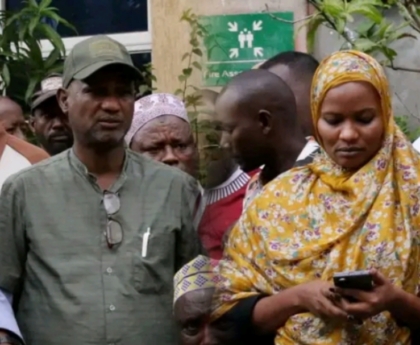A new BBC Africa Eye documentary, Blood Parliament, has shed light on the violent repression of Kenya’s Gen Z-led protests against the Finance Bill 2024, offering a harrowing account of brutality, extrajudicial killings, and a systemic failure of accountability.
Broadcast on April 28, 2025, the investigative program revisits the events of June 25, 2024, when thousands of young, unarmed demonstrators stormed Kenya’s Parliament buildings in Nairobi.
The protests were sparked by the government’s proposed tax increases amid an escalating cost-of-living crisis that had already burdened many Kenyans.
What began as peaceful demonstrations quickly descended into chaos after security forces launched a violent crackdown.
BBC’s investigation revealed that at least three protesters—David Chege, 39, Ericsson Mutisya, 25, and Eric Shieni, 27—were fatally shot by security personnel.
Shockingly, evidence points to the involvement of both police officers and members of the Kenya Defence Forces (KDF), including a plainclothes policeman identified as John Kaboi and a KDF soldier.
Using forensic analysis of more than 5,000 images and videos, including advanced 3D reconstructions, the BBC was able to link specific officers to the fatal shootings.
The documentary underscores the excessive and disproportionate use of force against nonviolent protesters, in blatant violation of Kenya’s constitutional protections for the right to peaceful assembly.
Despite widespread public outrage following the violence, no security officers have been held accountable for the killings.
The documentary suggests that between 30 and 39 people were killed across the country during the protests, highlighting an alarming culture of impunity within Kenya’s security forces.
BBC Investigation Highlights KDF’s Role in Protest Suppression
Beyond police brutality, the BBC documentary also brings to light credible allegations against the Kenya Defence Forces (KDF).
According to the investigation, KDF troops were deployed to support the police in quelling the protests after the breach of Parliament—a move that drew sharp criticism from legal experts and civil society groups, notably the Law Society of Kenya, which questioned the legality of the military’s domestic deployment without clear constitutional authorization.
Human rights organizations, including Amnesty International and the Kenya National Commission on Human Rights (KNCHR), have documented a litany of abuses during this period: enforced disappearances, extrajudicial executions, and the use of live ammunition against unarmed civilians.
These findings align with the BBC’s detailed reporting, adding to a growing body of evidence pointing to systemic issues within Kenya’s security apparatus.
The documentary has amplified calls from domestic and international observers for independent investigations, accountability, and structural reforms.
Human rights advocates argue that the events of June 2024 represent not just isolated excesses but a broader pattern of militarization of civilian policing and disregard for fundamental freedoms.
A Test for Kenya’s Commitment to Democracy and Rule of Law
The violent suppression of the Gen Z protests and the revelations from Blood Parliament present a critical challenge for Kenya’s leadership.
Activists, legal experts, and concerned citizens are demanding urgent reforms to ensure the security forces operate within the law and respect human rights.
As Kenya grapples with the fallout from these tragic events, many are watching to see whether the government will pursue justice for the victims—or allow impunity to prevail, eroding trust in democratic institutions.
The BBC’s documentary serves as a stark reminder of the high cost of speaking out in the face of injustice and the urgent need for governments worldwide to respect and protect the rights of their citizens.
Share This Post





